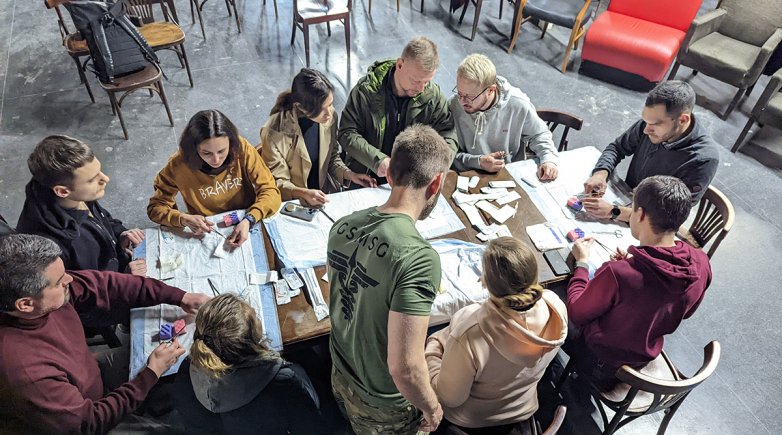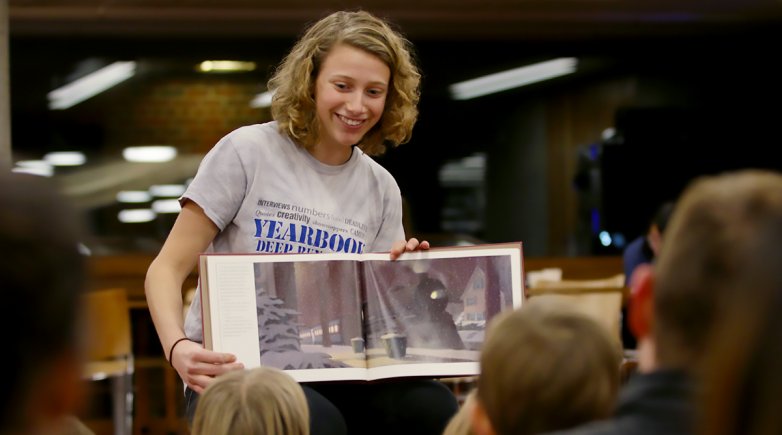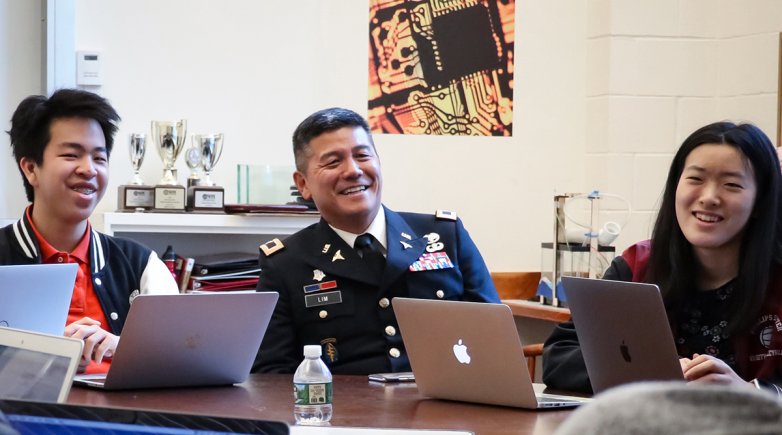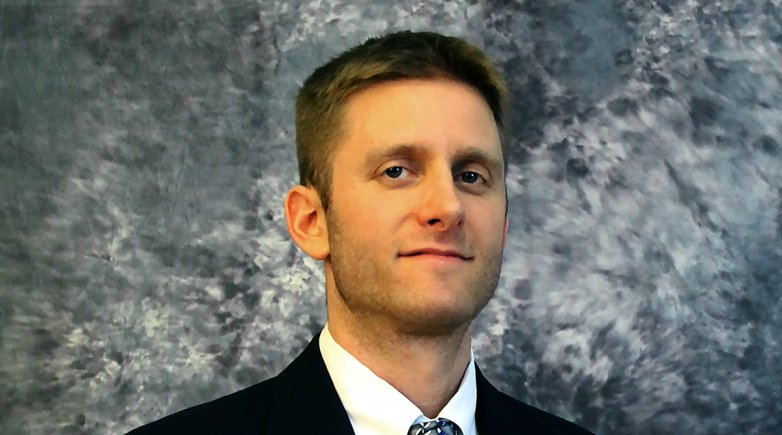Combat Care
Aaron Epstein '04 trains medics on the front lines in Ukraine.
Aaron Epstein '04 teaches trauma care in Ukraine.
They came in a roar, a pair of Russian cruise missiles flying a mere 50 feet above the Lviv, Ukraine, streetscape. Chain link fences rattled, while car alarms and air raid sirens sounded plaintive wails. For Aaron Epstein ’04, the vision of the projectiles zeroing in on their target that March evening in 2022 was in a way unreal, but he had too much work to do to consider the personal danger.
“You can imagine a telephone pole flying over your head, they’re that long,” says Epstein, a physician who, as founder of the nonprofit Global Surgical Medical Support Group (GSMSG), was in the country for five weeks to teach civilians, doctors, medical students and members of the military a crash course in combat casualty care. His primer included instructions on tying tourniquets, keeping airways open, placing trauma chest tubes and suturing blood vessels. The Russian invasion of its western neighbor had started only days earlier and everyday people were organizing en masse to prepare for every eventuality.
Moments before the flyover, Epstein was offering his medical team’s services to Ukraine security officials in the event of air raid casualties. He watched as the missiles struck an oil storage area less than 2,000 feet away. No one was injured at the explosion site, and Epstein and his rotating squad of 10 to 20 volunteer civilian doctors and nurses — many of whom had learned steely equanimity as members of military special forces — were far enough away to escape injuries.
Epstein does not blink in the face of danger. He has a job to do, and he carries it out with gallows-style pragmatism. “If a cruise missile is going to hit you, you’re not going to be able to do much to survive,” he says. “What’s the point in being worried? It’s wasted energy.”
Epstein and his team taught medical procedures daily from 7 a.m. to what was then an 8 p.m. curfew. The group spent its nights at safe houses selected by Ukrainian security services and remained on call should medical and surgical needs arise. They dined on traditional Ukrainian borscht and other Eastern European fare, such as pierogies. “I’m not going to lie, I’m not a foodie at all,” he says with a laugh. “I liked it all.”
To date, he has made three separate visits to Ukraine while the GSMSG teams of medics and physicians have maintained a continuous presence on the ground since the start of the war. In total, he and his teams have trained more than 20,000 Ukrainians in combat casualty care ranging from basic medical interventions to advanced trauma surgery.
Epstein’s work has been officially recognized back home in the United States. In July, he received the Citizen Honors Service Award from the Congressional Medal of Honor Society at a ceremony in Charleston, South Carolina, for his “commitment to providing medical relief to communities in conflict zones, austere environments, and disaster areas around the world.” He started GSMSG in 2014 and has led his volunteers to strife-torn nations such as Iraq, Syria and Venezuela. Epstein credits Exeter’s non sibi ethos with guiding his humanitarian efforts over the years. “That stuck with me from the day I got [to the Academy], and from then on,” he says.



